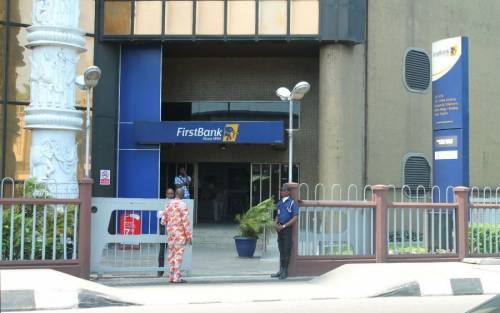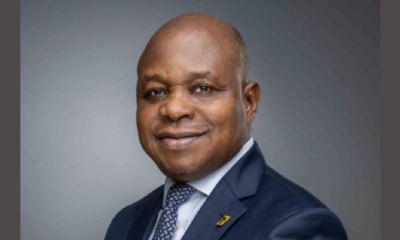A lot of people around the world, at some point in their lives, take loans to settle some of their urgent or medium-term needs. These might include emergency expenses, appliance purchases, payment of medical bills, payment of tuition fees, feeding expenses, wedding expenses, vehicle financing, and vacation costs, among others.
These loans are usually paid back in weekly, monthly installments for the duration of a few months or years, depending on the loan package and how consistent the borrower is, with the payments.
In recent times, the E-commerce and fintech space have been clogged with a lot of incompetent companies, especially those offering long and short-term loan facilities. Ultimately, the COVID-19 pandemic has led to many people resorting to ‘loan sharks’ or creditors who charge exorbitant interest rates.
Disguised as credible companies willing to help customers meet urgent needs, some of these companies also breach data privacy and engage in cyberbullying. Whenever a lender defaults, some of the companies send derogatory and embarrassing messages to the lender’s contact list. This is because they usually have access to the lender’s details during registration.
In light of this, the Federal Competition and Consumer Protection Commission (FCCPC), National Information and Technology Development Agency (NITDA), and the Independent Corrupt Practices and Related Offences Commission (ICPC) recently shut down about six illegal loan companies. The FCCPC also revealed plans to introduce a proper regulatory framework for the operators.
Speaking during the World Consumer Rights Day celebration recently held in Abuja, the FCCPC boss, Mr Babatunde Irukera condemned the exploitation of Nigerians by these unlicensed online money lenders in the country. According to him, most of them are not registered with the Corporate Affairs Commission (CAC) and do not have any license to carry out their operations in the country.
Investors King recalls that in January, governor of the Central Bank of Nigeria (CBN), Godwin Emefiele advised Nigerians to beware of these loan sharks and leverage on loan facilities offered by registered financial institutions in Nigeria.
One of the credible multinational banks offering its customers easy-to-access loan products is FirstBank Nigeria Limited. The bank, known as the premier bank in West Africa is headquartered in Lagos, Nigeria.
Apart from offering a comprehensive range of retail and corporate financial services, FirstBank also offers a variety of loan services to eligible customers. From acquiring that dream vehicle to providing furniture and fittings for one’s home etc, the bank has a variety of loan products specifically designed to ease the acquisition of these pressing and urgent needs.
These products are First Advance, FirstCredit, PLAS (Personal Loan Against Salary) and Salary Account.
First Advance Loan
First Advance is a digital lending solution designed to offer convenient and easy access to cash for payroll customers awaiting payment of their salaries. The product is meant for interested and eligible customers whose salaries accounts have been domiciled with FirstBank for a minimum of Two (2) months, or salary earners willing to move their salary account to the Bank under certain terms & condition. The service can be accessed via the bank’s digital channels: FirstMobile and USSD.
The maximum amount accessible is N500,000.00 subject to 50% of net average three months’ salary, whichever is lower. The eligible amount is calculated after deducting all other loan obligations to the Bank.
However, this may not apply to all, depending on their salary structure. If the average of three months’ salary doesn’t match the limit, it simply translates to securing loans below that mark. This safety net is put in place to protect the consumer by ensuring ease of payment for all parties at excellent interest rates.
To access this service, the customer’s salary account must be domiciled with First Bank and a tenor of 30 days or next pay day (whichever comes first) is the requirement to securing the loan.
FirstCredit Loan
The FirstCredit is a product designed to provide customers with a quick and simple loan to fund their transactions. These loans can be accessed from anywhere without necessarily visiting the Bank. For this, no documentation or collateral is required.
Personal Loan Against Salary
FirstBank’s Personal Loan Against Salary (PLAS) creates opportunities for salary accounts holders to unlock the wealth in their accounts. It also helps customers meet rent obligations, vacation trips to choice destinations and pay for professional examinations to take their career to the next level. PLAS is available to employees whose salary accounts are domiciled with FirstBank.
According to the bank’s, Group Head, Products & Marketing Support, Mr. Abiodun Famuyiwa, “FirstBank salary account holders can access up to N30 million to help them pursue capital projects, carry out renovation works on their properties, acquire assets, give their children the best education and other fulfilling accomplishments. The scheme offers options to top-up and refinance existing loans at competitive rates”.
Benefits of FirstBank Salary Account
Some of the benefits of Salary Accounts include Zero opening balance, zero minimum daily operating balance, zero AMC charge, first Free Verve or Master Card Issuance, as well as access to consumer loans.
With more than 12 million customer accounts, FirstBank has over 750 branches providing a comprehensive range of retail and corporate financial services. The Bank has international presence through its subsidiaries, FBN Bank (UK) Limited in London and Paris, FBNBank in the Republic of Congo, Ghana, The Gambia, Guinea, Sierra-Leone and Senegal, as well as its Representative Office in Beijing.
Since its establishment in 1894, FirstBank has consistently built relationships with customers focusing on the fundamentals of good corporate governance, strong liquidity, optimized risk management and leadership. Over the years, the Bank has led the financing of private investment in infrastructure development in the Nigerian economy by playing key roles in the Federal Government’s privatisation and commercialisation schemes.


 Naira4 weeks ago
Naira4 weeks ago


 Naira4 weeks ago
Naira4 weeks ago




 Naira4 weeks ago
Naira4 weeks ago
 Commodities4 weeks ago
Commodities4 weeks ago




 Naira3 weeks ago
Naira3 weeks ago


 News4 weeks ago
News4 weeks ago
 Travel4 weeks ago
Travel4 weeks ago




 Naira3 weeks ago
Naira3 weeks ago





















